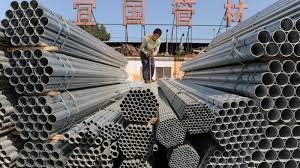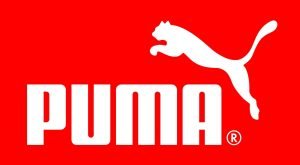Globaltraded.com — Expanding your business into emerging markets can be both exciting and daunting. For many companies, especially those new to international expansion, finding the right distributor or agent is critical to success. In these regions, your distributor will often be the primary point of contact between your brand and the market, so choosing the right partner can make all the difference. Here’s a guide to help you navigate this selection process effectively and pick the agent that can drive your brand’s success.
- Understand the Role of a Distributor vs. an Agent
Before you start your search, it’s essential to clarify what you need: a distributor or an agent. A distributor will buy your products in bulk and resell them, managing the logistics and sometimes even warehousing. An agent, on the other hand, acts as a middleman, helping connect you with buyers but not necessarily purchasing your products outright. Knowing which type you need will help you focus on the right candidates and avoid potential mismatches down the line.
- Define Your Ideal Partner Profile
You want a distributor or agent who not only has market access but also aligns with your brand’s goals and values. Ask yourself questions like:
- Do they have experience with similar products?
- What is their reputation in the industry?
- Are they familiar with the regulatory environment and cultural norms? By defining what you’re looking for upfront, you’ll have a checklist that will guide you in evaluating each candidate’s potential fit with your business.
- Research the Local Market Landscape
A thorough understanding of the local market helps you see where your product will fit and who is most likely to buy it. Researching the market landscape also allows you to understand your competition and identify the kind of distributor that might already have experience with products similar to yours. Look into:
- Consumer preferences and expectations
- Competitor analysis
- Distribution channels typically used for similar products This knowledge will be invaluable when you start interviewing potential agents or distributors.
- Leverage Industry Contacts and Networking
Often, the best recommendations come from within your industry network. Attend trade shows, business forums, and industry-specific conferences in your target region to meet potential partners in person. Networking with other businesses, even competitors, can provide insights and direct referrals. Connecting through chambers of commerce, trade associations, or even embassies can also open doors to reliable distributors and agents.
- Evaluate Experience and Market Reach
Look for a partner with a proven track record and established relationships with local retailers, wholesalers, or customers. Assess their knowledge of local trends and demand, and ask for case studies or references from other clients they’ve worked with. Key points to check include:
- How long they’ve operated in the market
- Their distribution network’s size and reach
- Familiarity with the target audience Choosing someone who has successfully introduced similar products can accelerate your entry and growth in the market.
- Assess Financial Stability
Your distributor will be handling your product, making it essential to assess their financial stability and ability to invest in the partnership. A financially stable distributor is more likely to uphold agreed payment terms, maintain inventory, and potentially invest in marketing or promotion efforts. Don’t shy away from requesting financial documents, such as audited statements or credit histories, to verify their stability.
- Look for Strong Marketing Capabilities
In many emerging markets, distributors also handle marketing. Look for a partner with solid marketing skills and a deep understanding of local advertising channels. If possible, ask about their prior marketing activities and their ability to support brand-building efforts. A distributor who understands digital marketing, social media, and local events can help generate brand awareness and engagement, which is vital for new market entrants.
- Test Communication and Responsiveness
Communication is the cornerstone of any partnership. A good distributor should be prompt, transparent, and open to regular updates. When assessing a candidate, pay close attention to how they communicate:
- Are they quick to respond to emails or calls?
- Do they provide clear and relevant information?
- Are they open to feedback and suggestions? These are all signs that they will be easy to work with and can address issues promptly, which is crucial for a long-term partnership.
- Ensure Cultural Compatibility and Language Proficiency
Cultural nuances play a significant role in successful business relationships. Make sure that your distributor understands and aligns with your brand values and company culture. Language barriers can also be challenging, especially in markets where English is not widely spoken. Choose a partner who has fluency in your language or employs staff who can effectively bridge communication gaps.
- Define Expectations and Performance Metrics Early
To avoid misunderstandings down the line, set clear performance metrics and goals right from the start. These could include:
- Monthly or quarterly sales targets
- Minimum stock levels
- Marketing activity schedules
- Regular reporting requirements Putting these expectations in writing helps keep the partnership accountable and allows you to measure the distributor’s performance accurately.
- Negotiate Terms Carefully
In emerging markets, regulatory and economic environments can be unpredictable. A flexible, well-negotiated contract can save you a lot of trouble if things change. Key terms to discuss include:
- Exclusivity: Decide if you’ll give exclusive rights to your distributor in the region.
- Payment terms: Clarify how and when payments will be made, especially if the distributor will be purchasing stock.
- Termination clauses: Specify how the contract can be terminated, particularly if sales targets aren’t met. Ensuring mutual understanding on these points creates a strong foundation for the partnership.
- Start Small and Scale Up
Before committing to a large-scale rollout, test the partnership on a smaller scale. This pilot phase allows you to evaluate how the distributor manages initial sales, marketing, and distribution. It’s a low-risk way to gauge whether they meet your expectations and align with your vision for the market.
- Visit the Market and Meet Key Players in Person
Although it may be tempting to finalize everything remotely, visiting the market allows you to get a firsthand view of your distributor’s operations, their relationship with local retailers, and the potential challenges your product might face. Meeting in person solidifies the partnership and shows commitment to the market, which is appreciated in many cultures.
- Be Patient and Build the Relationship Gradually
Building a reliable distribution network in emerging markets takes time. Be patient and invest in strengthening the relationship with your distributor. Offering training, incentives, and other forms of support can improve their ability to represent your brand effectively. Remember, a long-term partnership will bring more value than quick profits.
Expanding into emerging markets with the right distributor can unlock vast potential for your business. With careful planning, research, and relationship-building, you can find a partner who not only understands the market but is also invested in helping your brand succeed. Take your time in the selection process, and the rewards can be substantial.

























































